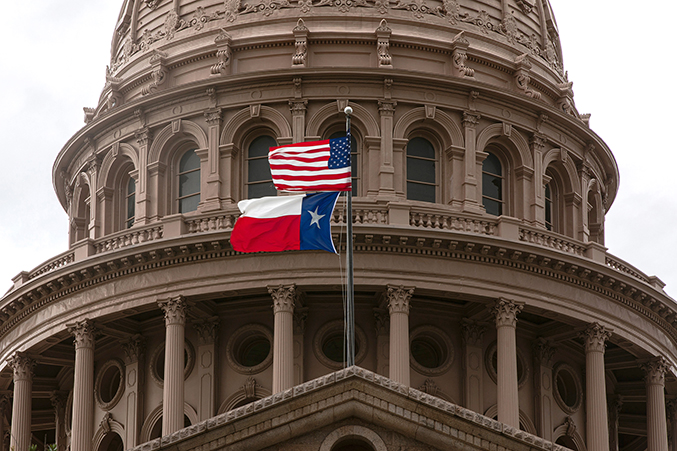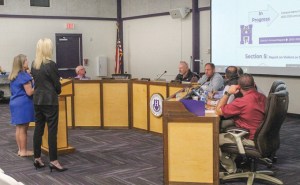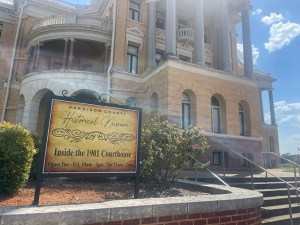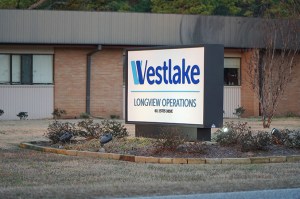Disaster relief bills get hearing in Texas House but will stall if shutdown continues
Published 10:55 pm Tuesday, August 5, 2025
AUSTIN — A Texas House panel heard testimony on five bills Tuesday meant to provide relief funding and upgrade emergency communications systems, among other solutions, in response to the deadly Hill Country floods that killed hundreds last month.
The committee will stop there, however, unless the House can gather a quorum before the special legislative session runs out.
No votes in the legislature have been taken since at least 51 House Democrats left the state Sunday to block a key redistricting vote by keeping the 150-member Texas House from being able to conduct official business – which requires at least 100 members, or two-thirds of the House membership, to be on the floor.
Trending
Rep. Ken King, R-Canadian, who chairs the House Select Committee on Disaster Preparedness and Flooding, said more proposals to help residents and officials recover and respond to disasters will likely be filed __ and he’d make sure they all get as far as they can go.
The bills were left pending but will be voted out in a later committee meeting, King said.
“I intend on voting these bills out whether or not the House had a quorum or not,” King said. “This work is too important to wait on the political games to get over with, and so this committee will continue to do the work we were expected to do.”
Only one member of the committee was absent – Rep. Ann Johnson, D-Houston, who left the state Sunday with the other House Democrats.
The other three Democrats and five Republicans panel members were in attendance.
Rep. Joe Moody, D-El Paso, a member of the committee who stayed in Austin this week to maintain a presence in the House chamber, agreed that flood relief is “the important work” of the session and said Gov. Greg Abbott should have the authority to make several of the proposals happen without legislation at all.
Trending
He expressed frustration that nobody from Abbott’s office was at the hearing to answer questions on what steps could be taken without the cooperation of the absent Democrats.
“In the not too distant past, there have been a number of extraordinary actions that have come from the executive in times of need,” Moody said, referring to Abbott’s executive orders during the COVID-19 pandemic. “And I want to know what we can do right now, because games shouldn’t be played with this topic. And if it needs legislation, we will pass it. But if it doesn’t, then it needs to be done now.”
King responded: “Thank you. Do not disagree.”
King had the committee clerks reach out to Abbott’s office to ask a representative to attend the hearing but said that after a few text messages, there was no response.
During that exchange, Abbott released a statement saying he had asked the Texas Supreme Court to remove House Democratic Caucus Chair Gene Wu from office in his Houston-based House district.
The bills, all sponsored by Republicans and considered likely to pass the committee, ranged from tightening up flood-plan requirements for public and private campgrounds in flood plains to beefing up oversight of relief charities to reduce fraud. Legislation was also introduced that would create licensing and training requirements for designated emergency management coordinators.
“My heart still breaks after seeing what happened in your district, and it’s just the latest in a chain,” King said to committee member Wes Virdell, whose Hill Country district was most heavily impacted by the floods. “I’ve been through several of them, and no bill is going to stop the next disaster. Our job is, how do we mitigate that disaster? And improving our infrastructure, whether it’s interoperability or (upgrading) an 80-year-old electrical infrastructure, those are all pieces of the puzzle that we need to address.”
A proposal by House Appropriations Chair Greg Bonnen, R-Friendswood, would expand the use of the state’s Broadband Infrastructure Fund to include funding for response, communications and early warning systems to be used in disasters and other emergencies.
The bills also included HB 2, by King, which would create the Texas Interoperability Council that would create a structure and grant programs for multiple agencies to communicate and coordinate on single disasters – from hurricanes to mass shootings – through the Texas Division of Emergency Management.
The bill was voted down during the House session but resurrected in the aftermath of the floods.
TDEM Chief Nim Kidd testified that the bill would help dramatically in coordinating dozens of agencies, particularly the federal partners, who come in to assist Texans in disasters.
For example, Kidd said, agencies such as the U.S. Coast Guard and the U.S. Border Patrol were helping in Kerrville after the floods but communicated with their own radio systems, when a more streamlined system could have helped state responders and the federal personnel operate more efficiently.
“We have no overarching structure to assign them to the radio channels at the very beginning.. and still can’t communicate with the men and women that are on the ground doing the search,” Kidd said. “This council would help us solve that problem faster.”







